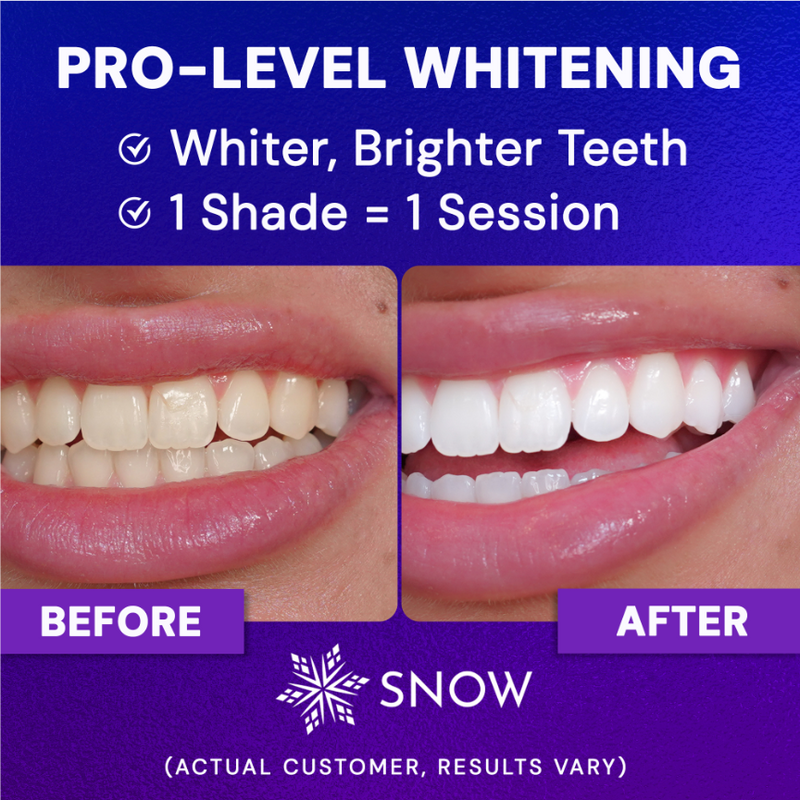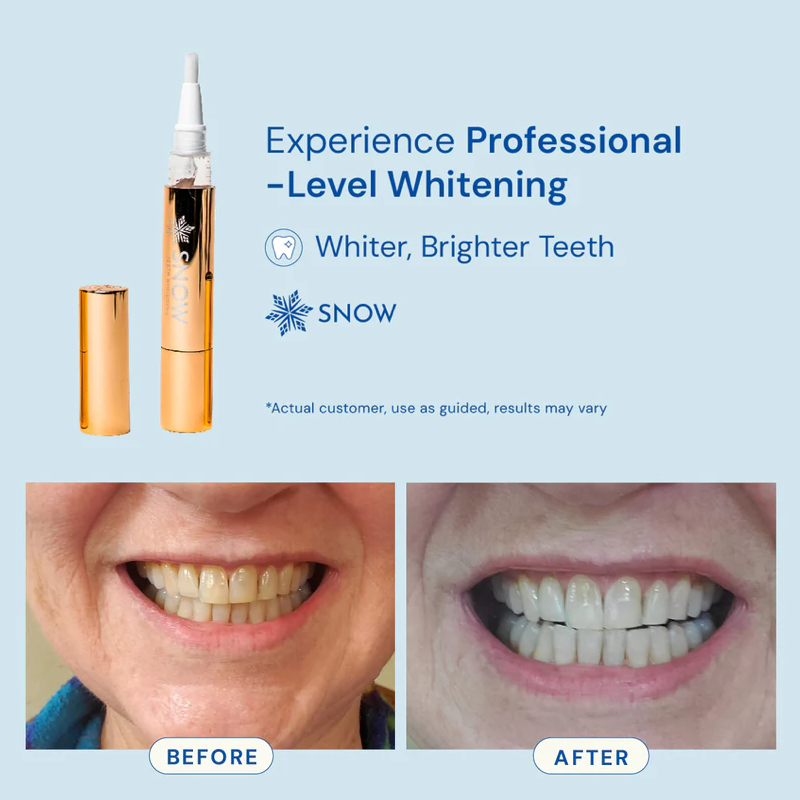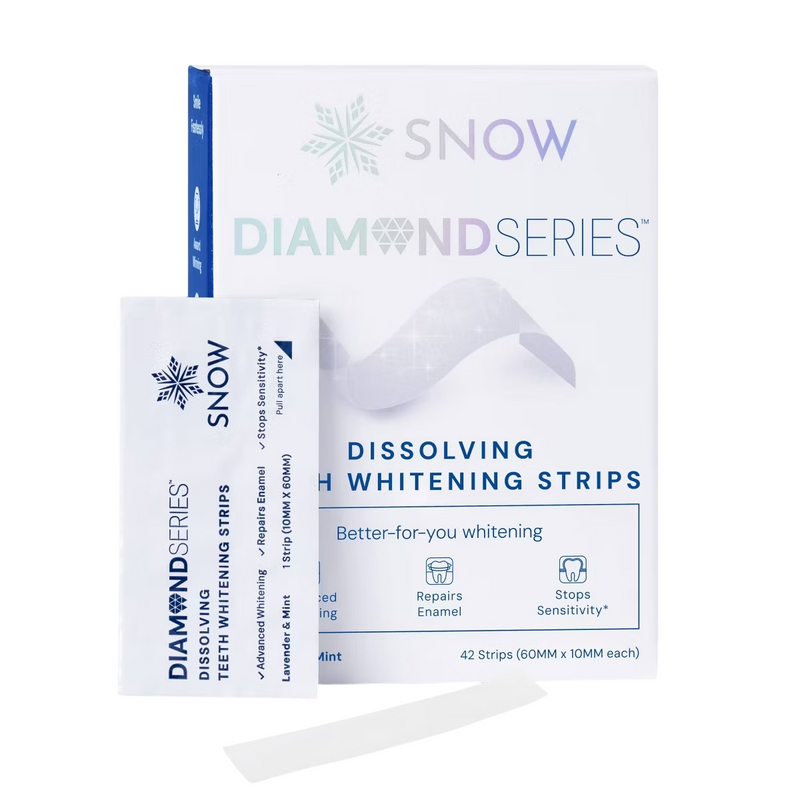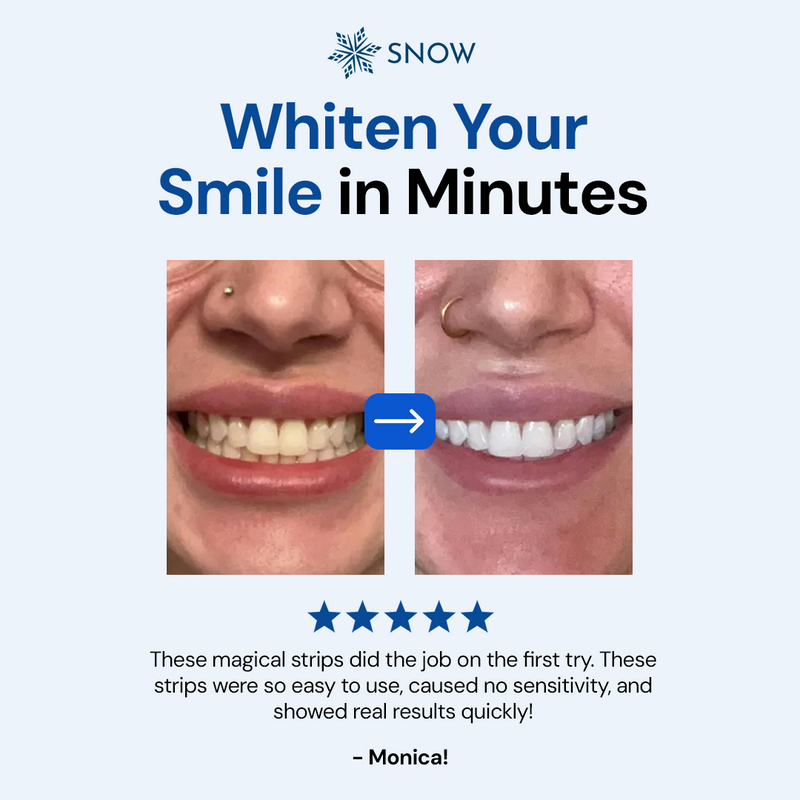Why is my tongue cracked? This common condition—clinically known as a fissured tongue—usually isn’t serious, but it can sometimes reflect other oral or systemic health concerns. A fissured tongue occurs when deep grooves form in the tongue’s appearance, occasionally linked with conditions like geographic tongue or dry mouth. While generally painless, it’s important to monitor symptoms and seek professional medical advice if discomfort or changes arise. This article explores what causes it and how to care for your tongue effectively.
Key Takeaways
-
A fissured tongue is a common, typically harmless condition characterized by grooves on the tongue’s surface, affecting 5% to 20% of the global population.
-
While often asymptomatic, individuals with a fissured tongue may experience discomfort or bad breath due to food debris or bacteria trapped in the grooves; persistent pain or changes require medical evaluation.
-
Management strategies include maintaining good oral hygiene, dietary adjustments, and routine dental check-ups; the prognosis is excellent with proper care and lifestyle modifications. A fissured tongue generally doesn't require treatment, but good oral hygiene is essential.
What is a Cracked Tongue
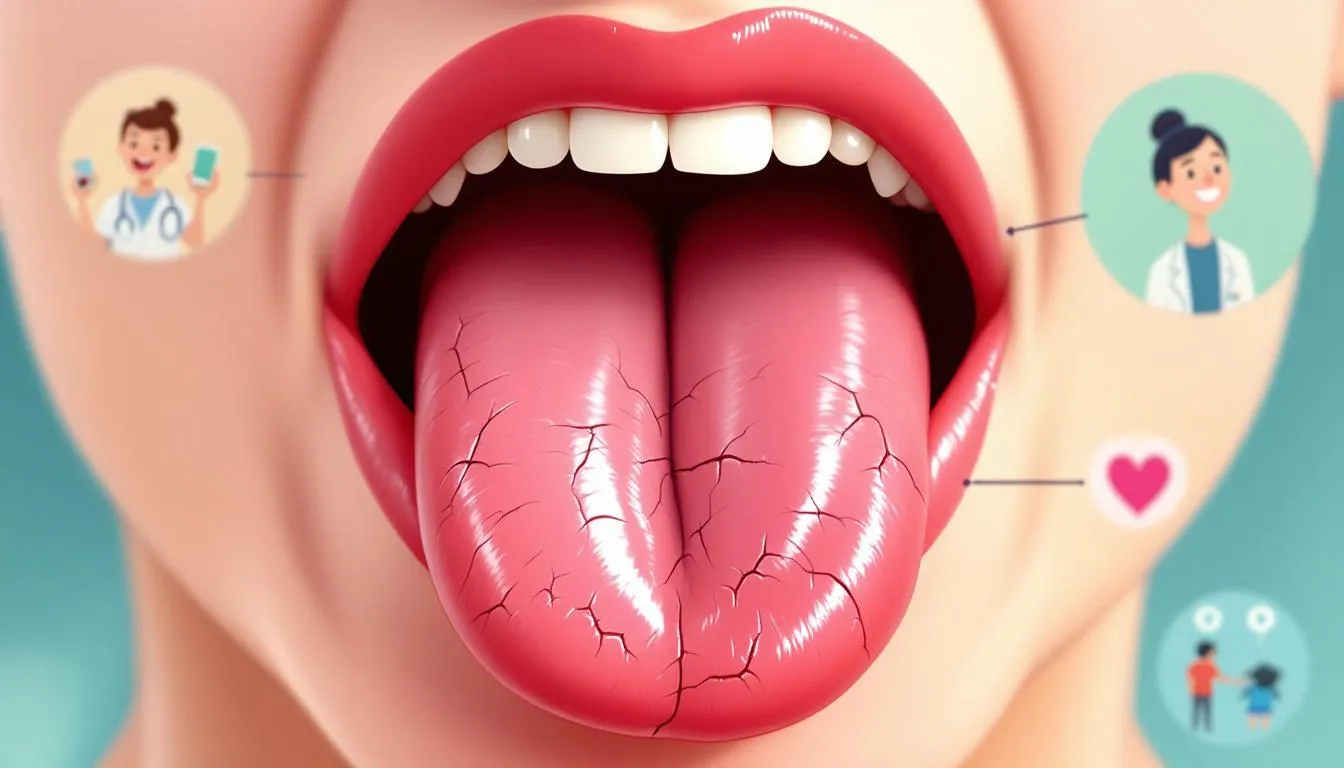
A fissured tongue—also known as lingua plicata, scrotal tongue, or furrowed tongue—is a benign condition in which deep grooves or cracks appear across the tongue's surface, particularly on the top surface. This common condition affects about 5% to 20% of the global population and is usually harmless. A fissured tongue appears as visibly split or wrinkled, but it’s not considered a rare condition or a disease. It typically doesn't require treatment unless associated symptoms arise.
A normal tongue is covered with tiny bumps (papillae), giving it a smooth and uniform texture. In contrast, a fissured tongue may show a prominent groove running down the middle, alongside additional tongue fissures that vary in depth and shape. These grooves can trap food and bacteria, which may lead to bad breath, tooth decay, or irritation if not managed with good oral hygiene.
Though the exact cause is unclear, the condition often runs in families, suggesting a genetic component. It’s also more common in older adults and individuals with genetic or systemic issues like Down syndrome or Melkersson-Rosenthal syndrome.
How Common Is a Fissured Tongue and When Does It Develop?
A fissured tongue can develop in childhood or later in life, becoming more visible with age. While many people never notice it, others may observe changes in the tongue’s appearance over time. It occurs in both sexes but may be slightly more common in men. Regional variations in prevalence further support its genetic link.
Though often overlooked, the condition can be spotted during early detection at routine dental visits. A healthcare provider or dentist will usually identify it through visual exam—no biopsy or lab test is needed.
What Does a Fissured Tongue Feel Like?
Most people experience no symptoms and may not realize they have a fissured tongue. However, in rare cases, severe symptoms like irritation, pain, or difficulty eating may occur. These can be triggered when debris or bacteria build up in deep cracks—especially after eating spicy or acidic foods.
Some individuals report a burning sensation in the mouth, particularly when the fissures are irritated. Bad breath may also result from food particles trapped within the grooves. These symptoms are more likely if oral hygiene is neglected.
If additional issues arise—like facial swelling, persistent discomfort, or other symptoms—it could signal an underlying condition, such as Candida albicans infection or a vitamin deficiency. In these cases, a healthcare provider should evaluate the situation for proper treatment.
Related Tongue Conditions
A fissured tongue may coexist with other oral conditions like geographic tongue, which involves smooth, red patches on the tongue's surface. Together, these tongue conditions can complicate oral health, especially without proper oral hygiene. Using a tongue scraper, staying hydrated, and avoiding irritants are key preventive steps.
While more studies are needed and more research is ongoing, maintaining regular checkups and good oral health routines significantly helps in managing the condition and preventing complications.
Common Symptoms of a Cracked Tongue
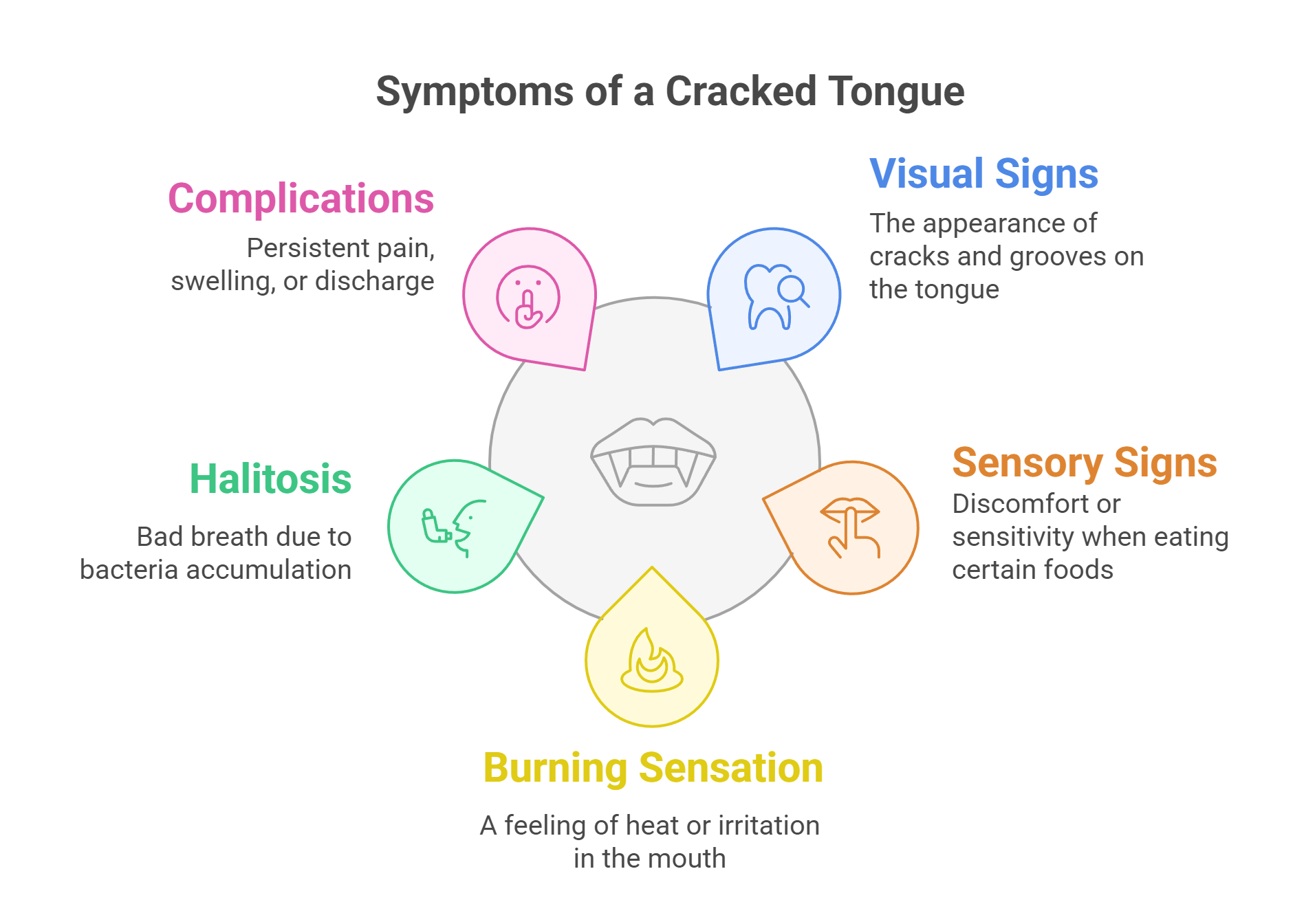
A fissured tongue may appear wrinkly or cracked, but it usually does not cause any symptoms. However, some individuals experience a burning sensation in the mouth due to food or bacteria trapped in the grooves. Halitosis, or bad breath, can occur when bacteria accumulate in the tongue’s fissures.
Fissures on the tongue can also lead to discomfort or sensitivity, especially when eating acidic or spicy foods.
Fissured tongue may also be seen with other oral conditions, which can be identified during routine dental exams.
Visual and Sensory Signs
The visual and sensory signs of a fissured tongue include a wrinkly or cracked surface with one or multiple grooves on the tongue’s surface, which can vary in depth and pattern. Some individuals may experience discomfort or sensitivity, particularly when consuming acidic or spicy foods.
Occasionally, a burning sensation or bad breath may occur when debris accumulates in the grooves, leading to normal trouble and worry.
When Symptoms Suggest a Complication
Persistent pain, swelling, redness, or discharge can suggest irritation or infection due to trapped debris. Progressive changes in fissure appearance or new difficulty eating/swallowing are red flags that should be discussed with a healthcare provider, especially if accompanied by red patches.
Causes of a Cracked Tongue
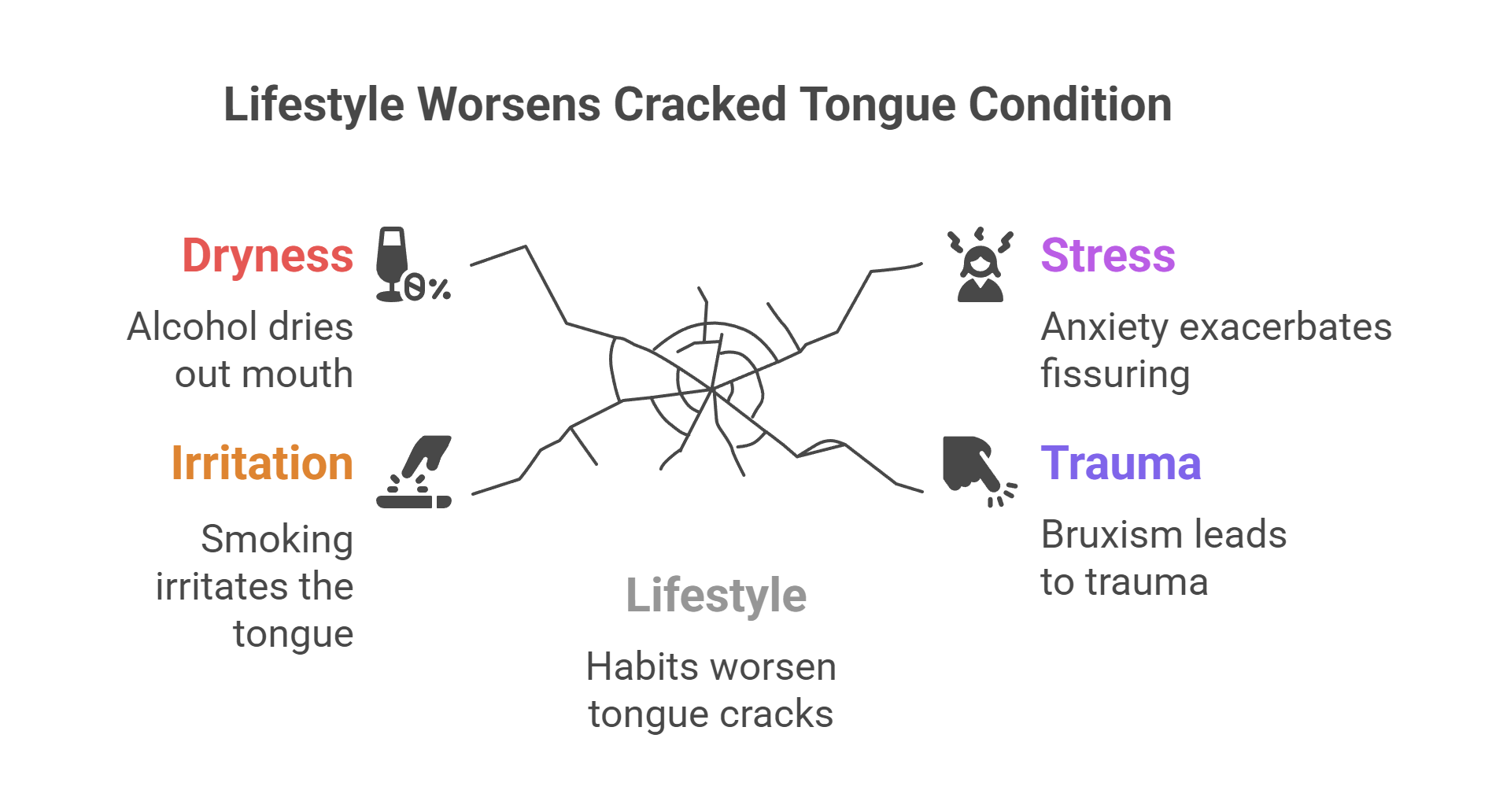
A fissured tongue typically appears on the top surface of the tongue and can result from a blend of genetic, nutritional, and lifestyle factors. While often a benign condition, the exact cause is not fully understood. However, evidence suggests both hereditary and environmental influences may contribute to its development.
Genetic Factors
Genetics plays a major role in the development of tongue fissures. The condition tends to run in families and shows up more commonly in certain populations. Individuals with Down syndrome or Melkersson-Rosenthal syndrome often display a higher occurrence of fissured tongue.
-
Fissures can become more noticeable in older adults, possibly due to age-related tissue changes.
-
Genetic inheritance appears to influence both the appearance and depth of tongue grooves.
Nutritional Deficiencies
Vitamin deficiency, particularly involving B-complex vitamins like B2 (riboflavin), iron, and zinc, is a known contributor to fissured tongue and other oral conditions.
-
A deficiency in these nutrients may lead to visible cracks on the tongue's top surface.
-
Vitamin deficiency-related tongue symptoms may include soreness, redness, or burning sensations in the mouth.
-
Eating a well-balanced diet rich in essential vitamins may reduce symptoms and the severity of tongue fissures.
Lifestyle Influences
Certain lifestyle habits can worsen existing tongue cracks or contribute to their development:
-
Smoking irritates the tongue and increases the severity of deep fissures.
-
Alcohol consumption can dry out the mouth and worsen irritation.
-
Chronic stress and anxiety may exacerbate fissuring or trigger discomfort.
-
Bruxism (teeth grinding) can also lead to trauma-related tongue changes.
These factors may not directly cause a fissured tongue but can amplify discomfort and increase the need for treatment or improved hygiene practices.
Associated Conditions
In rare cases, a cracked tongue may signal a deeper underlying condition:
-
Candida albicans, a type of fungal overgrowth, can lead to tongue irritation or secondary infection.
-
Conditions like Melkersson-Rosenthal syndrome, Down syndrome, or chronic inflammatory diseases may include fissured tongue as a secondary manifestation.
-
The appearance of tongue fissures may also accompany other oral conditions, such as geographic tongue or chronic dry mouth.
Though often harmless, persistent or worsening symptoms may require professional assessment. More research is needed to fully understand the long-term progression and best treatment strategies for this common condition. Regular dental visits and proper oral care remain key to managing discomfort and preventing complications.
Associated Conditions
Fissured tongue is often an indicator of other health issues and can occur alongside various conditions. Common associated conditions include geographic tongue and Sjogren’s syndrome. Studies indicate a notable link between psoriasis and fissured tongue, particularly in older patients with severe psoriasis.
Conditions such as Down syndrome, Melkersson-Rosenthal syndrome, and malnutrition are also associated with fissured tongue under certain conditions. Fissured tongue frequently occurs alongside genetic syndromes, autoimmune conditions, and other medical factors. The condition is sometimes associated with other syndromes, such as Down syndrome and Melkersson-Rosenthal syndrome.
Diagnosis and When to See a Healthcare Provider
Fissured tongue is typically diagnosed through its distinct appearance during routine dental check-ups. A biopsy is generally not required to confirm a diagnosis of fissured tongue. Regular dental check-ups can lead to the detection of a fissured tongue, as dentists often notice the grooves during routine cleanings.
While a fissured tongue is generally harmless, medical advice should be sought if it causes discomfort or if there are signs of infection due to trapped food or bacteria. It is important to monitor tongue cracks to ensure they are not accompanied by other symptoms, despite usually not causing much discomfort.
Healthcare providers diagnose fissured tongue through visual examination alone; no laboratory tests are required.
How It’s Diagnosed
Fissured tongue is diagnosed by visual examination during routine dental or medical check-ups; labs and biopsy are typically unnecessary. Dentists often first notice the grooves during regular cleanings.
When to Seek Care
Seek advice if there is persistent pain, signs of infection (swelling, pus, foul taste), difficulty eating or swallowing, sudden changes in appearance, or concern for an underlying condition, including facial swelling. It is important to seek professional medical advice.
Ask providers for guidance on keeping grooves free of debris and whether a nutritional assessment is warranted.
Management and Treatment Strategies
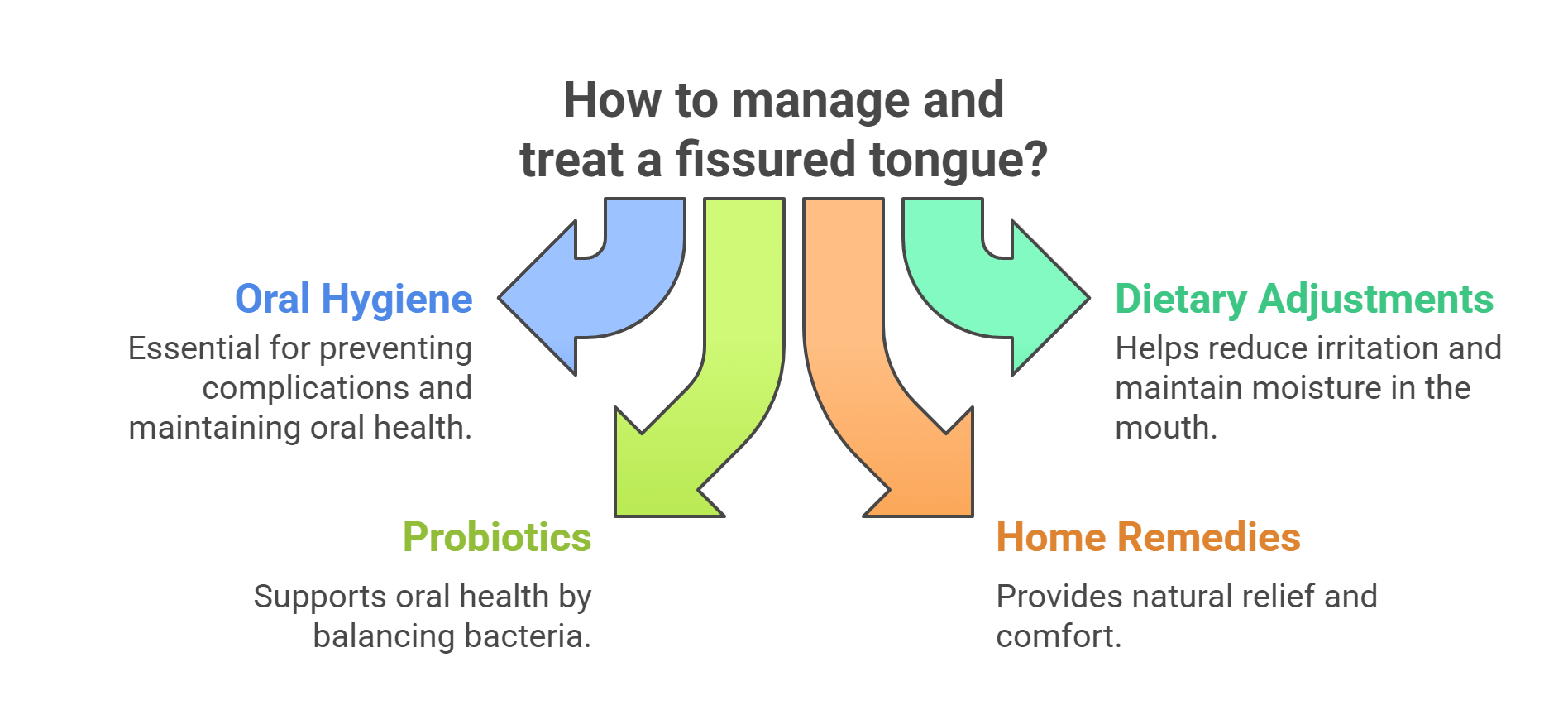
Maintaining good oral hygiene is essential for preventing complications in individuals with a fissured tongue. Poor oral hygiene can lead to tooth decay, as bacteria and debris can accumulate in the grooves of the tongue, increasing the risk of dental problems. Regular use of mouthwash can help maintain oral health for individuals with a fissured tongue. Daily rinsing with an antibacterial mouthwash can help keep the tongue clean and reduce the risk of infection.
A fissured tongue generally does not require treatment, and it is only necessary to treat fissured tongue if symptoms or complications develop. However, proper oral care is important to remove debris from the tongue’s surface. Treatments for tongue cracks include:
-
Good oral hygiene
-
A healthy diet
-
The use of probiotics
-
Home remedies like ginger tea and mint infusions.
If bacteria or fungi, such as Candida albicans, proliferate in the grooves of a cracked tongue, an infection can develop. Genetic fissured tongue cannot be prevented, but maintaining optimal oral hygiene can prevent complications.
Oral Hygiene Practices
To maintain oral health and care for a fissured tongue:
-
Brush thoroughly to clear buildup from the cracks in the tongue.
-
Use a tongue scraper to effectively remove debris from the grooves.
-
Attend regular dental visits for early detection of complications and professional cleaning of deep grooves.
Good oral hygiene, including brushing the tongue’s grooves and managing food particles, is essential to prevent infection and maintain health, especially in relation to oral conditions.
Dietary Adjustments
Reducing the intake of highly acidic foods may help lower irritation in individuals with a fissured tongue. Adjusting the intake of acidic foods may help reduce irritation for those with a fissured tongue. Reducing the intake of acidic foods may alleviate irritation in individuals with fissured tongues.
Staying well-hydrated is essential as it helps maintain moisture in the mouth and can reduce irritation associated with a fissured tongue and dry mouth. A diet that includes a variety of vitamins and minerals is important for overall oral health and can help prevent the complications of fissured tongue.
Dietary adjustments can play a crucial role in managing the symptoms associated with a fissured tongue.
Prevention and Long-Term Outlook
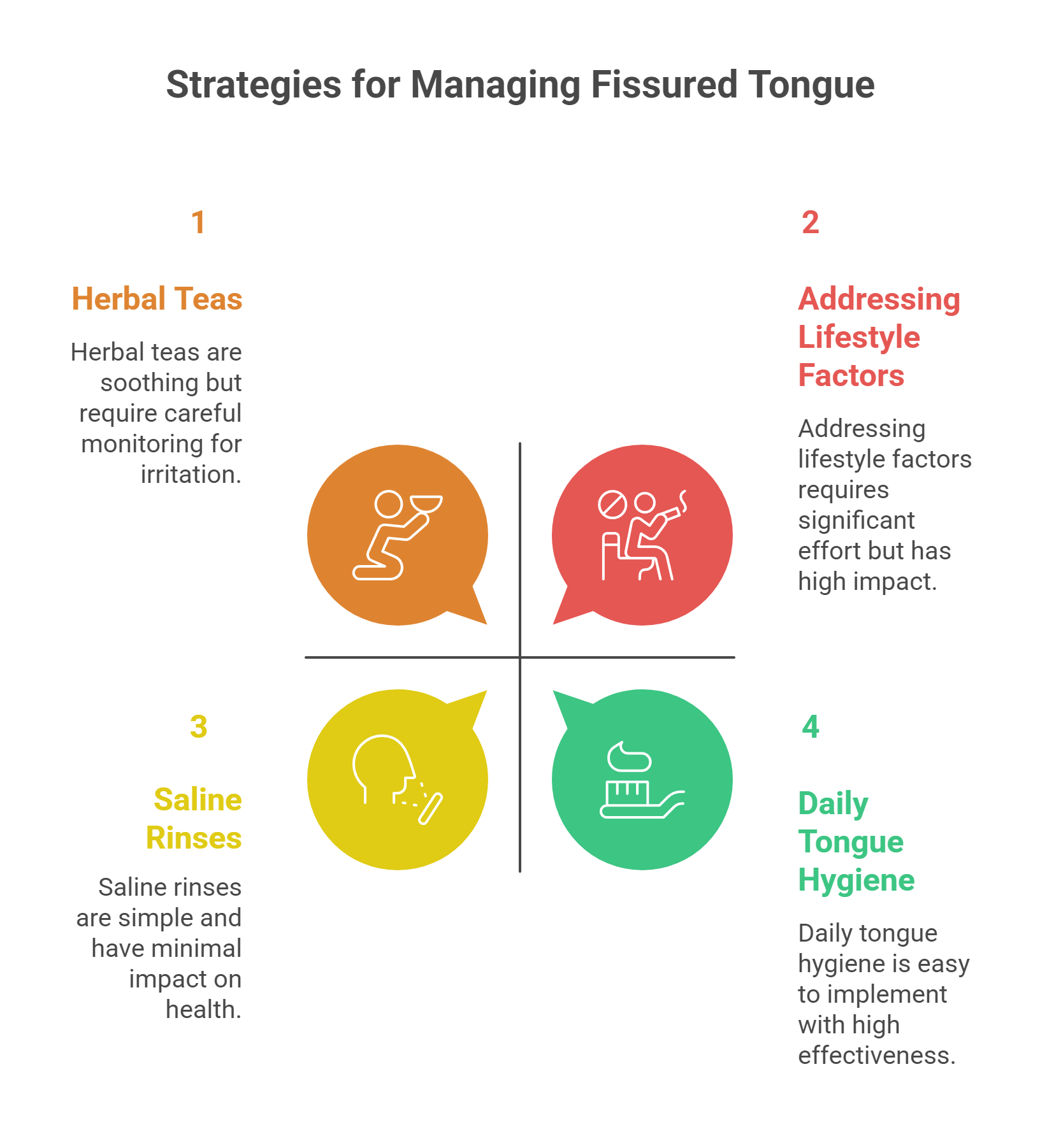
Individuals with a fissured tongue have an excellent prognosis and no further impact on health. With proper care and lifestyle adjustments, most individuals with a fissured tongue can manage the condition effectively and minimize discomfort.
Home Remedies and Adjuncts (Use Judiciously)
Gentle saline rinses can soothe tissue and aid cleanliness, making them a simple yet effective home remedy for managing fissured tongue. Probiotics may support overall oral microbiome balance; however, the evidence is still evolving. They should be used as a complement, not a replacement, for good hygiene practices.
Herbal teas like ginger or mint can be soothing for some individuals, but it’s essential to discontinue use if any irritation occurs.
Prevention-Focused Habits
Maintaining a fissured tongue involves several prevention-focused habits:
-
Daily tongue hygiene
-
Routine dental care
-
Adequate hydration
-
A nutrient-dense diet
Additionally, identifying and avoiding personal irritation triggers, such as specific foods or oral products, can help reduce smooth discomfort; however, more research is needed to fully understand the impact.
Addressing modifiable lifestyle factors like smoking, alcohol consumption, and bruxism can also play a significant role in preventing complications.
Final Thoughts
Understanding fissured tongue is essential for managing its symptoms and preventing complications. This condition, although often harmless, can be a source of discomfort for some individuals. By maintaining good oral hygiene, making dietary adjustments, and seeking professional advice when needed, most people can manage fissured tongue effectively. Remember, your tongue’s health is a vital part of your overall well-being. With the right care, you can ensure your mouth stays healthy and comfortable.
Frequently Asked Questions
What lifestyle factors can cause tongue cracks?
Smoking and alcohol consumption can irritate the mouth, leading to tongue cracks. It is advisable to limit these habits to promote oral health.
At what age does a fissured tongue typically develop?
Fissured tongue can appear at birth or develop during childhood, often becoming noticeable in early years of life. Fissures may first appear during childhood and increase in prominence with age.
Is a fissured tongue contagious or harmful?
Fissured tongue is not contagious or harmful, generally presenting no significant symptoms for most individuals. While some may experience mild discomfort, it typically does not require treatment.
What percentage of people in the United States have a cracked tongue?
Approximately 5% of people in the United States have a cracked tongue, also known as a fissured tongue.
What is crucial for preventing infections in individuals with a cracked tongue?
Maintaining good oral hygiene, particularly by cleaning the grooves of the tongue, is essential for preventing infections in individuals with a cracked tongue. Prioritizing this practice can significantly reduce the risk of complications.















































